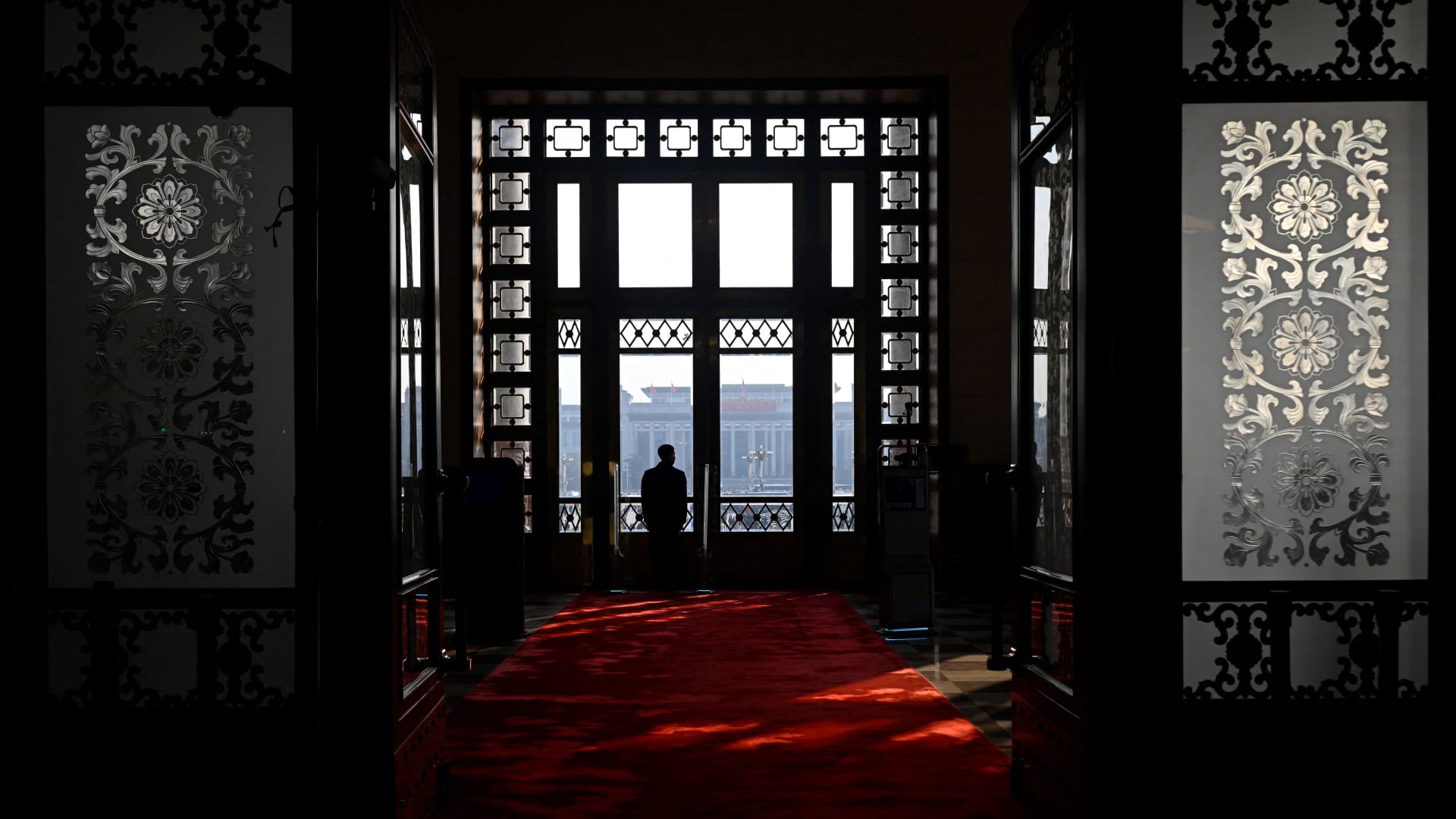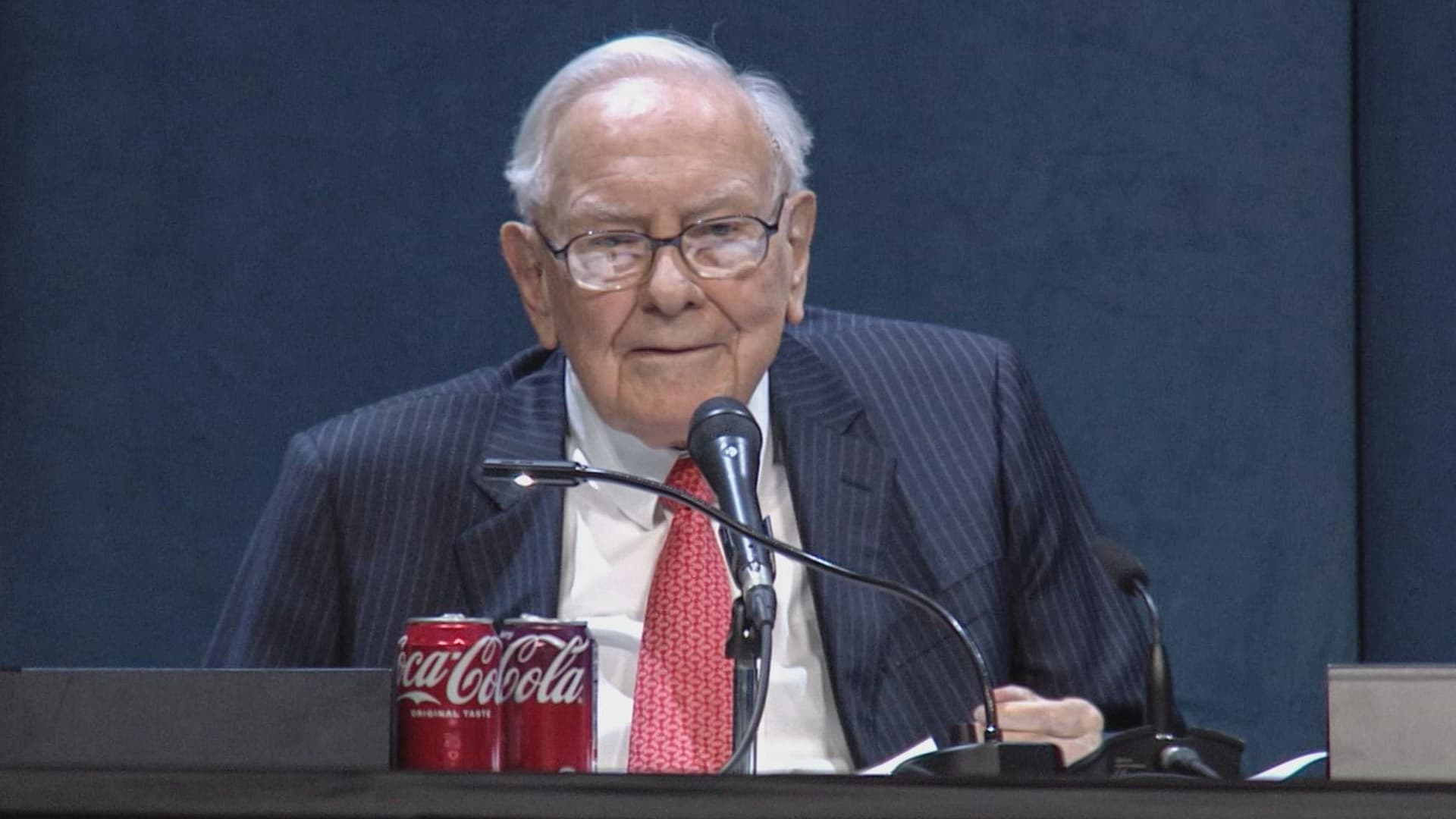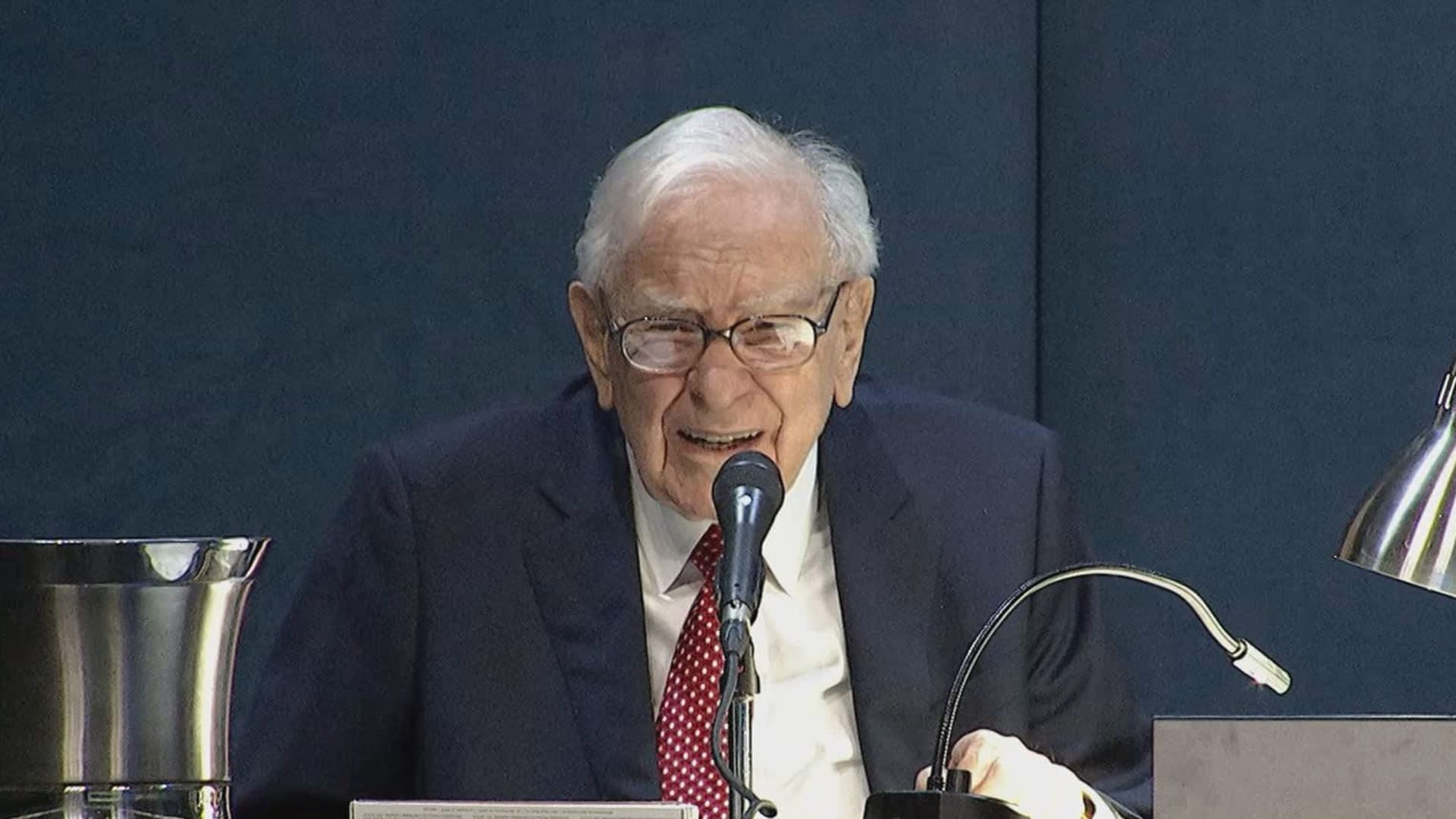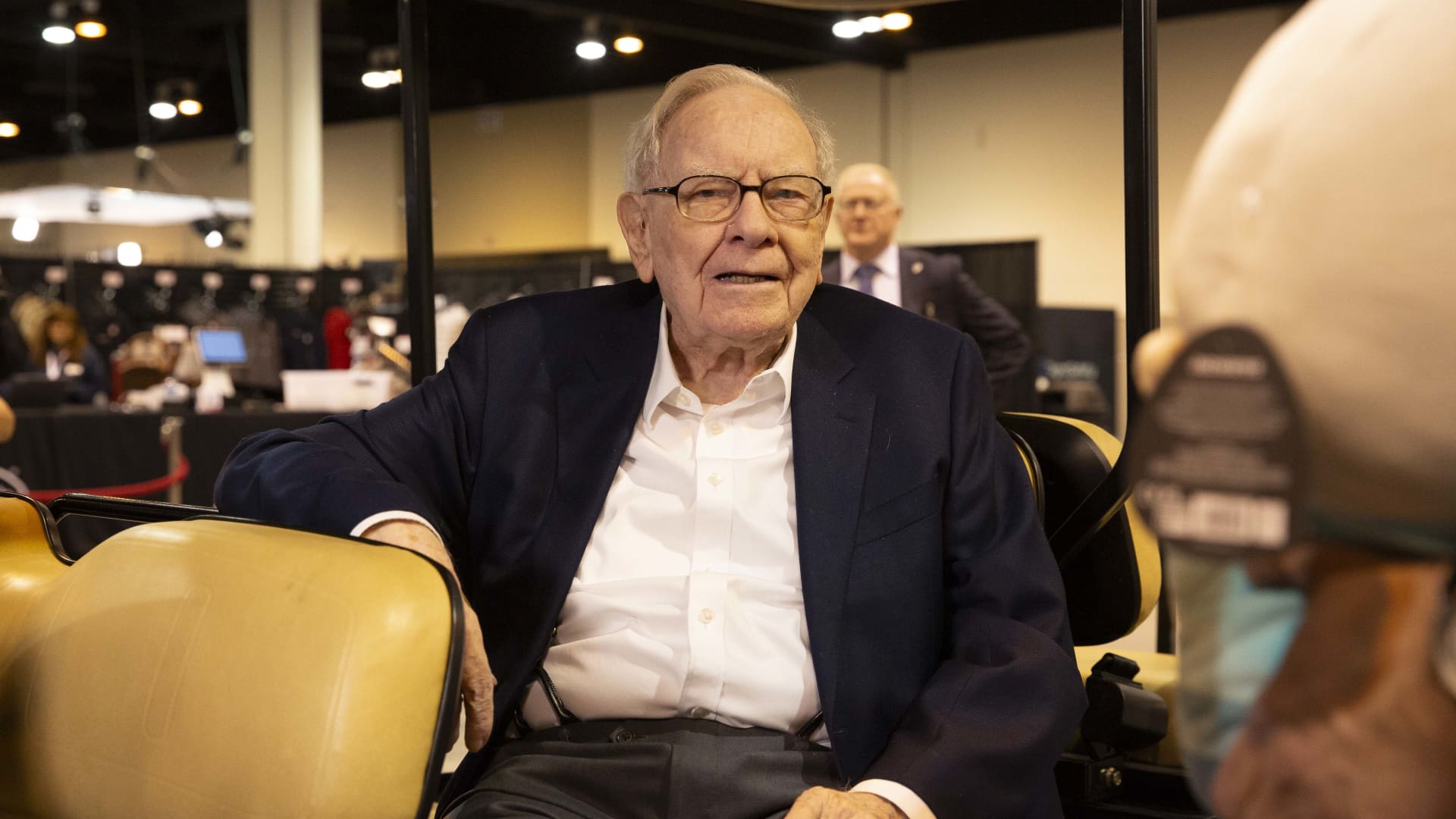A security guard watches during the opening session of the National People’s Congress (NPC) in the Great Hall of the People in Beijing on March 5, 2025.
Wang Zhao | Afp | Getty Images
BEIJING — The undercurrent of China’s annual parliamentary meetings this week is U.S. trade tensions — and how Chinese technology is offsetting that pressure.
The largely ceremonial gathering of delegates in Beijing this year came just as U.S. President Donald Trump addressed Congress and imposed new tariffs on Chinese goods. It’s a clear drag on exports, while Chinese companies have only faced tougher restrictions on accessing high-end semiconductors and other advanced tech.
“Internationally … an increasingly complex and severe external environment may exert a greater impact on China in areas such as trade, science and technology,” Chinese Premier Li Qiang said in his annual report on government work at the opening ceremony of the National People’s Congress on Wednesday, according to an official English translation of the Chinese.
It was an unusually grim assessment at least among the seven parliamentary meetings I have attended. But I also sensed a greater willingness to support the private sector than in the past — especially as it relates to tech innovation, such as with Chinese AI company DeepSeek.
“We will promote the healthy and well-regulated development of the platform economy and give better play to its role in inspiring innovation, expanding consumption and stabilizing employment,” Li said in the work report.
That marked the latest signal that Beijing now wants to support the private sector after previously taking a far more restrictive stance and imposing large fines on tech giants Alibaba and Tencent, often called “platform“ companies in China. Many companies and industries in China have historically been dominated by the state.
DeepSeek’s recent rise demonstrated to many international investors — who had grown cautious on the slowing economy — how a Chinese company could compete with the U.S. on AI, regardless of White House sanctions.
Beijing was quick to affirm the startup’s success. DeepSeek’s Liang Wenfeng attended a meeting with Premier Li in January, and a symposium with Chinese President Xi Jinping in February.
AI to counter protectionism?
While DeepSeek didn’t get a specific mention in the government work report, a member of the team that drafted the report named it — and applications such as Kuaishou’s Kling AI for video generation — while talking to the press on Wednesday about China’s rapid AI development.
“Historically, technological progress is often an important force for breaking through barriers and protectionism,” Chen Changsheng, who is also deputy director of the State Council Research Office, said in Mandarin translated by CNBC.
“We look forward to how under the current international backdrop, AI will become a positive energy to promote cooperation and multilateralism,” he said.
HONG KONG, CHINA – JANUARY 28: In this photo illustration, the DeepSeek apps is seen on a phone in front of a flag of China on January 28, 2025 in Hong Kong, China.
Anthony Kwan | Getty Images News | Getty Images
“Tech” got one more mention in this year’s report versus last year, and “reform” got 10 more mentions, according to the Chinese-language versions. Tech self-reliance also got its own sub-section in China’s latest annual work report, in contrast to a passing mention in 2024.
A new law
China’s legislature has been discussing a new law to support the private sector. Beijing has said it would be enacted as soon as possible after further discussions and revisions.
This year, policy will likely be driven more from the bottom up, rather than the top down, said Ding Wenjie, investment strategist for global capital investment at China Asset Management Co., according to a CNBC translation of her Mandarin-language remarks.
She expects growth in AI and leading tech to spur development of other industries, but cautioned that it will likely take companies more than just one or two quarters to see results.
China’s parliamentary meetings officially wrap up early next week. More official comments on tech and the private sector law are expected to trickle out in coming days.
Among the top priorities for the year ahead, Premier Li said, is supporting “the extensive application of large-scale AI models.” Beijing plans to increase funding for biomanufacturing, quantum technology, AI-linked robotics and 6G technology.
The industry-specific goals come as China is trying to boost consumer spending, minimize the drag from real estate and navigate trade tensions with the U.S.
China’s “policy focus is to accelerate AI adoption and autonomous driving, while make gradual progress in restructuring housing and [local government financing vehicle] debt,” Morgan Stanley’s chief China Economist Robin Xing and a team said in a note Wednesday. They noted that the “fiscal package came as expected: a [2 trillion yuan ($280 billion)] expansion with mild support on consumption.”
Chinese official comments during this week’s meetings hint at a preference for open-source models.
Chen on the work report drafting team warned against “excessive” use of private AI projects that could fragment the market, and instead called for “large-scale applications.”
China will also work to increase computing capacity and develop “a system of open-source models,” the economic planning agency, called the National Development and Reform Commission, said in its plan for the year ahead.

 Economics1 week ago
Economics1 week ago
 Accounting1 week ago
Accounting1 week ago
 Economics1 week ago
Economics1 week ago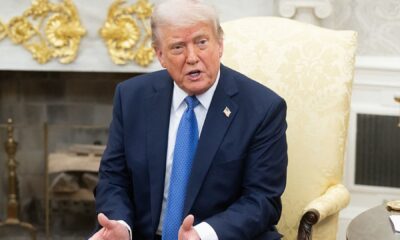
 Economics1 week ago
Economics1 week ago
 Economics1 week ago
Economics1 week ago
 Personal Finance1 week ago
Personal Finance1 week ago
 Economics1 week ago
Economics1 week ago
 Personal Finance1 week ago
Personal Finance1 week ago
